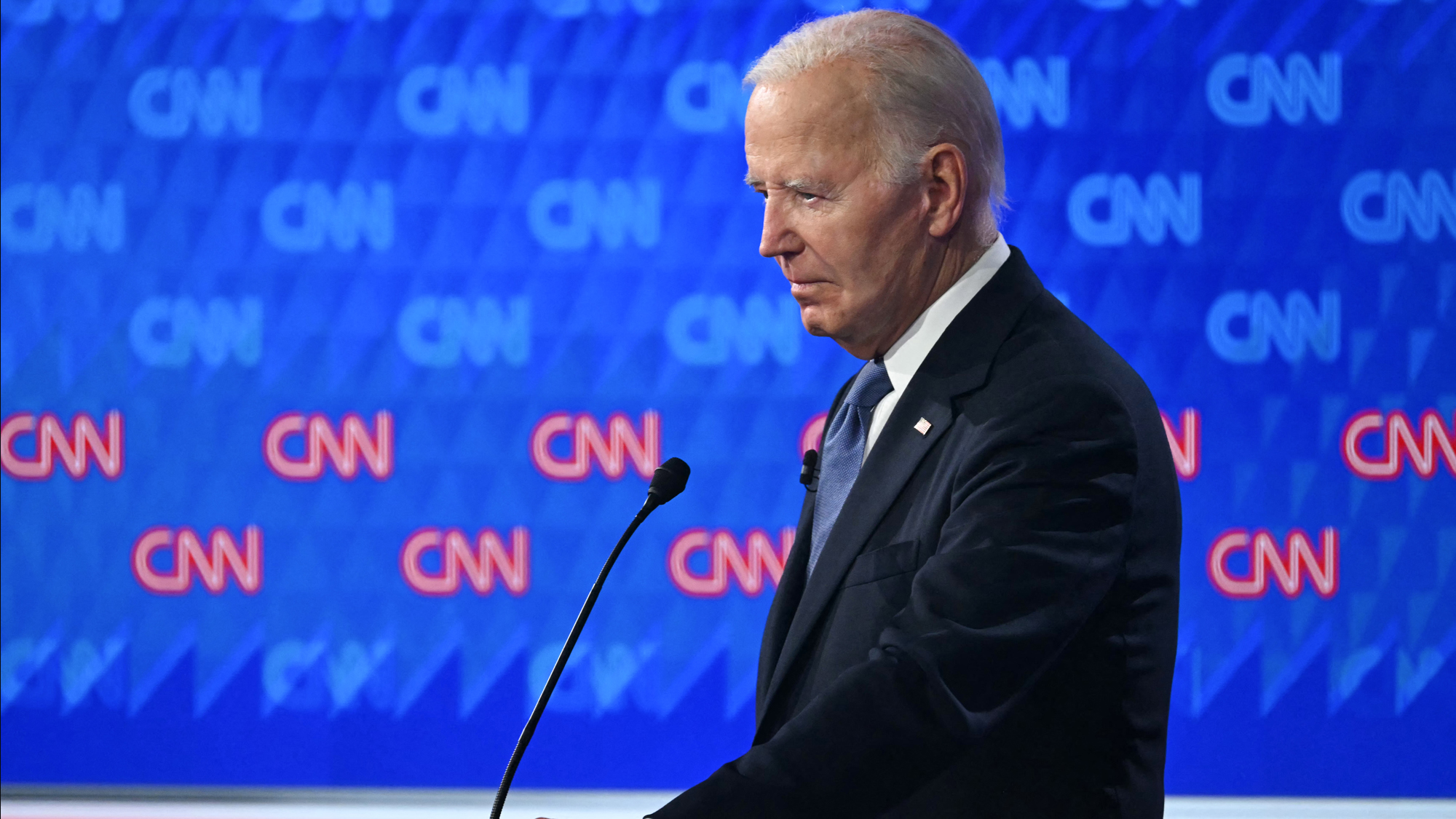See No Stumbles
How so much of the press badly flubbed its coverage of Biden's deterioration


A free daily email with the biggest news stories of the day – and the best features from TheWeek.com
You are now subscribed
Your newsletter sign-up was successful
About a month before the debate that upended President Joe Biden's campaign, The Wall Street Journal published a story headlined "Behind Closed Doors, Biden Shows Signs of Slipping." The story was built largely on anonymous sources, with only Republicans providing the on-the-record ballast. Though the Journal's news pages have long had a reputation for studious nonpartisanship, it was roundly slammed by a cadre of media experts, who dismissed it as a hit piece filled with innuendo. The article has aged, obviously, far better than the critiques — which raises the question: Why weren't there more stories that prepared us for the shock of the debate? One theory, of course, is that many journalists didn't want to hurt Biden. I take a generous view here. The New York Times, for instance, did do many stories about the problem of Biden's age, despite the predictable savaging it got them from the Left. But there is a difference between covering Biden's age as a campaign issue and getting the straight story on his deterioration.
I think there is a more intricate underlying issue here of how reporting works today. The kind of reporting the Journal did, relying on deep and often anonymous sourcing, has become increasingly rare. Both editors and readers now expect hard evidence — documents, tapes, quotes from multiple named sources. Last week, the excellent reporter Olivia Nuzzi published a story in New York magazine detailing how Biden's decline was an open secret to insiders and to the reporters grimly following his public appearances. Commentators complained that the story could have been published earlier. My suspicion, however, is that before the debate any article like Nuzzi's would have been dismissed as "just vibes." Reporters once dealt freely in their own observations and the words of anonymous insiders. Now the rule is often that until there are documents or on-the-record quotes, there is no story. That has frequently made the news feel more professional and reliable. But it has also set the public up for shocking surprises.
This is the editor's letter in the current issue of The Week magazine.
The Week
Escape your echo chamber. Get the facts behind the news, plus analysis from multiple perspectives.

Sign up for The Week's Free Newsletters
From our morning news briefing to a weekly Good News Newsletter, get the best of The Week delivered directly to your inbox.
From our morning news briefing to a weekly Good News Newsletter, get the best of The Week delivered directly to your inbox.
A free daily email with the biggest news stories of the day – and the best features from TheWeek.com
Mark Gimein is a managing editor at the print edition of The Week. His work on business and culture has appeared in Bloomberg, The New Yorker, The New York Times and other outlets. A Russian immigrant, and has lived in the United States since the age of five, and now lives in Brooklyn with his wife and son.
-
 The ‘ravenous’ demand for Cornish minerals
The ‘ravenous’ demand for Cornish mineralsUnder the Radar Growing need for critical minerals to power tech has intensified ‘appetite’ for lithium, which could be a ‘huge boon’ for local economy
-
 Why are election experts taking Trump’s midterm threats seriously?
Why are election experts taking Trump’s midterm threats seriously?IN THE SPOTLIGHT As the president muses about polling place deployments and a centralized electoral system aimed at one-party control, lawmakers are taking this administration at its word
-
 ‘Restaurateurs have become millionaires’
‘Restaurateurs have become millionaires’Instant Opinion Opinion, comment and editorials of the day
-
 ‘This is something that happens all too often’
‘This is something that happens all too often’Instant Opinion Opinion, comment and editorials of the day
-
 Democrats push for ICE accountability
Democrats push for ICE accountabilityFeature U.S. citizens shot and violently detained by immigration agents testify at Capitol Hill hearing
-
 Fulton County: A dress rehearsal for election theft?
Fulton County: A dress rehearsal for election theft?Feature Director of National Intelligence Tulsi Gabbard is Trump's de facto ‘voter fraud’ czar
-
 ‘Melania’: A film about nothing
‘Melania’: A film about nothingFeature Not telling all
-
 ‘My donation felt like a rejection of the day’s politics’
‘My donation felt like a rejection of the day’s politics’Instant Opinion Opinion, comment and editorials of the day
-
 Gavin Newsom and Dr. Oz feud over fraud allegations
Gavin Newsom and Dr. Oz feud over fraud allegationsIn the Spotlight Newsom called Oz’s behavior ‘baseless and racist’
-
 Greenland: The lasting damage of Trump’s tantrum
Greenland: The lasting damage of Trump’s tantrumFeature His desire for Greenland has seemingly faded away
-
 Minneapolis: The power of a boy’s photo
Minneapolis: The power of a boy’s photoFeature An image of Liam Conejo Ramos being detained lit up social media
